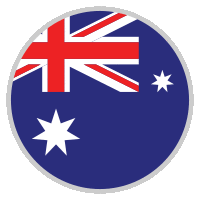-
CCK-A receptor antagonist
Loxiglumide (CR1505) is a cholecystokinin antagonist -
CCK-2 receptor antagonist
Z-360 is a selective, orally available, 1,5-benzodiazepine-derivative gastrin/cholecystokinin 2 (CCK-2) receptor antagonist with potential antineoplastic activity. -
CCK antagonist
Proglumide sodium salt is a non-selective cholecystokinin (CCK) antagonist. It inhibits CCK-stimulated amylase secretion and prevents CCK-induced 2-deoxyglucose uptake in mouse pancreatic acini. -
CCK-2 receptor antagonist
Nastorazepide is a selective, orally available, 1,5-benzodiazepine-derivative gastrin/cholecystokinin 2 (CCK-2) receptor antagonist with potential antineoplastic activity. -
CCK antagonist
Proglumide is a drug that exerts an inhibitory effect on gastric secretion and reduces gastrointestinal motility. IProglumide is a known cholecystokinin (CCK) antagonist. -
CCKA receptor antagonist
Dexloxiglumide is a selective cholecystokinin type A (CCKA) receptor antagonist. Dexloxiglumide, the active enantiomer of Loxiglumide, inhibits smooth muscle cell contractions induced by cholecystokinin-octapeptide (CCK-8). -
Gastrin/CCK-B antagonist
Sograzepide (Netazepide; YF 476; YM-220) is an extremely potent , highly selective and orally active Gastrin/CCK-B antagonist with an IC50 value of 0.1 nM, has inhibitory effect on Gastrin/CCK-A activity with an IC50 of 502 nM.
CCK
Cholecystokinin receptors (CCKRs) are a class of G-protein coupled receptors that respond to the peptide hormone cholecystokinin (CCK). CCK is predominantly found in the gastrointestinal tract and the central nervous system. There are two primary subtypes of cholecystokinin receptors: CCK-A (CCK1) receptor, mainly located in the pancreas, gallbladder, stomach, and certain areas of the brain, and CCK-B (CCK2) receptor, found predominantly in the brain and the stomach lining.
The primary function of CCKRs is to mediate the physiological actions of CCK. In the digestive system, CCK is involved in stimulating the digestion of fats and protein. It achieves this by inducing the secretion of digestive enzymes from the pancreas and bile from the gallbladder. Moreover, CCK plays a crucial role in regulating appetite by promoting satiety, making it a point of interest in obesity research.
In the central nervous system, CCK is involved in various functions, including anxiety, pain, and neuroendocrine control. CCK and its receptors are also implicated in psychiatric disorders like anxiety and panic attacks.
CCKRs are also significant in the medical field as potential targets for therapeutic intervention. For instance, CCK-B antagonists are being explored for their potential in treating anxiety disorders and gastrointestinal issues.
Overall, cholecystokinin receptors are integral to various physiological processes, from digestion to brain function, highlighting their importance in both understanding bodily functions and developing medical treatments.








